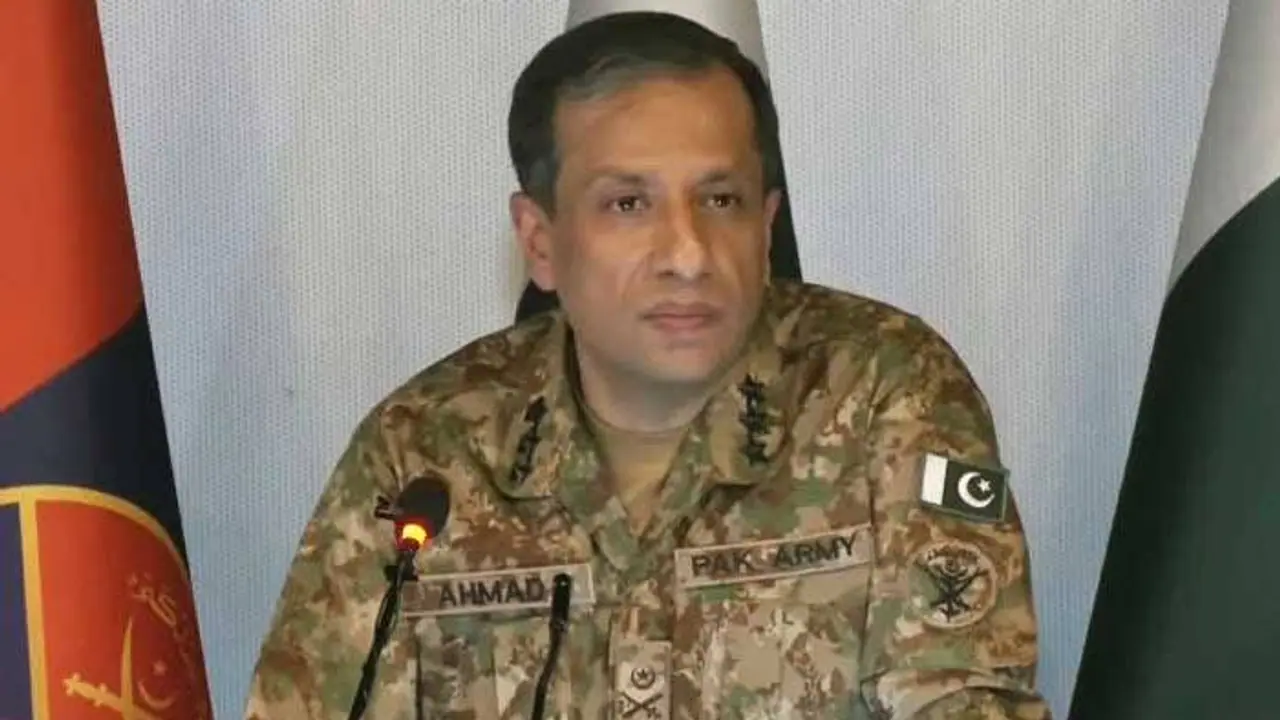Pakistan’s military blames India for orchestrating terrorism inside its borders following the Pahalgam attack.
In a move that appears more like a political smokescreen than a credible counter-response, Pakistan's military establishment on Tuesday attempted to shift global focus from the Pahalgam attack — in which 26 civilians, mostly tourists, were killed — to wild accusations against India, without offering any convincing evidence.

Lt Gen Ahmed Sharif Chaudhry, Director General of Inter-Services Public Relations (ISPR), addressed a press conference laden with dramatic claims but scant verifiable detail, accusing India of orchestrating terrorism inside Pakistan — a claim that fits into Islamabad’s familiar pattern of narrative control and denial.
‘Baseless Allegations Without a Shred of Proof’
While Prime Minister Narendra Modi asserted that the armed forces have "complete operational freedom" to decide on the mode, targets and timing of India's response to the Pahalgam terror attack, Pakistan resorted to its usual eyewash—pushing out unverifiable counter-narratives to deflect scrutiny and muddy the waters.
“We will present to you how India has been found to operate a terror network inside Pakistan in which explosives, IEDs (improvised explosive devices) and other materials are being provided to terrorists to target not only military but also innocent civilians," claimed Lt Gen Chaudhry.
“Seven days had passed since the Pahalgam incident but, so far, India had not provided a ‘shred of evidence’ for its ‘baseless allegations’ against Pakistan," he added.
Unverifiable Arrests and an Audio Clip: The ‘Evidence’
The so-called “irrefutable evidence” Pakistan offered was based on the arrest of an alleged terrorist, purportedly trained by India, near the Jhelum bus stand.
“Four days ago, on April 25, an Indian-trained and sponsored terrorist, who was a Pakistani citizen, was arrested... from whom one IED, two mobile phones, and Rs70,000 were recovered,” Chaudhry said.
Chaudhry added that further investigation led to the discovery of an “Indian-origin drone” and Rs1 million in cash — both claims that remain unchecked by independent observers.
Perhaps the most theatrical part of the briefing came when Chaudhry claimed that an Indian Army officer — “Subedar Sukvinder” — was handling the operations and sending IEDs to operatives in Pakistan.
He further alleged that: “Major Sandeep Verma alias Sameer” and three other Indian soldiers were involved, claiming to have aired an audio clip as proof."
“Just see, just hear what is being said by an Indian serving major. He is saying that ‘we conduct terrorism from Balochistan to Lahore’; He is telling the details of entry and how terror financing is carried out,” Chaudhry said, declaring the audio “irrefutable evidence of state-sponsored terrorism.”
Notably, the so-called audio clip has neither been authenticated nor shared publicly for any forensic or third-party evaluation — a pattern that has marred several of Pakistan’s previous “exposes.”
Jaffer Express Incident: Another Diversion?
Chaudhry also attempted to link India to the March 11 Jaffer Express hijacking by Baloch insurgents, claiming “credible evidence” of external support without offering specifics.
Further adding fuel to the fire, Pakistan claimed to have shot down an Indian quadcopter near the LoC amid reported nightly cross-border shelling.
Even as Pakistani Prime Minister Shehbaz Sharif calls for a “neutral probe,” his army’s media wing continues to act as judge, jury, and executioner — pushing forward allegations without opening the door to genuine independent inquiry.
If Pakistan seeks global credibility, it must first submit its “irrefutable evidence” to neutral agencies instead of launching press conferences. Until then, such allegations serve only to distract from growing scrutiny over Pakistan’s own failures to curb cross-border militancy and its dangerous internal radicalism.


